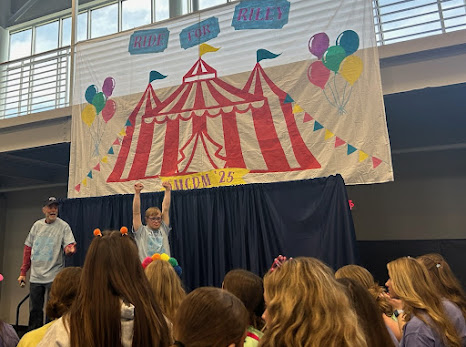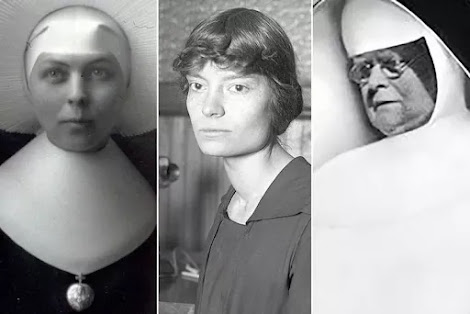This letter to the New York City Catholic Worker was mailed in early September 2023. A copy was also included in the package of newspapers returned via mail at the same time. To date, I have received no reply. Given the recent release of Dignitas Infinita, I thought it was worth making the letter public at this time.
Dear Catholic Worker friends,
I’m returning my bulk order of NYCW newspapers for the current issue as well as the previous one. I had intended to send back the latter much sooner, but I didn’t get around to composing an accompanying letter of explanation, and it seemed necessary to include one. When the new bulk order arrived a few days ago, I decided I needed to sit down and get this done, so here it is.
You’ll see from your records that I’ve been getting a bulk order of the NYCW for many, many years. Year after year, I’ve been dutifully putting them out in the literature racks at my parish, South Bend’s
St. Matthew Cathedral, in hopes that my fellow parishioners would pick them up, read them, and develop an interest in the Catholic Worker shtick.
In truth, I’d stopped reading them myself long ago, but I trusted that the New York CW community would never publish anything that would directly fly in the face of Catholic teaching. I mean, I knew there would be some squishy stuff from time to time, and maybe even some edgy propositions, but I had no fear that Dorothy Day’s flagship newspaper would promote outright heterodoxy or heresy.
I was wrong. The “Declaration of a Catholic Commitment to Trans-Affirmation” you included in your January/February 2023 issue is beyond squishy and edgy, which is why I’m returning these papers to you and asking that you cancel my bulk subscription. Since I don’t read the CW anymore, I missed that statement last winter, and it only came to my attention when I came across Larry Chapp’s piece in the
National Catholic Register, "Whither the Catholic Worker Movement?" As I skimmed through it, this line jumped out at me: “…a full-throated endorsement of modern transgender ideology.” That caused me to slow down, read the whole piece thoroughly, and then go track down a copy of the Jan/Feb ’23 CW to verify Chapp’s assertions.
Regrettably, everything Larry wrote was true, and I became disoriented and distraught. When I recovered from the shock, I immediately went to St. Matt’s and removed all NYCWs from the literature racks, including stray copies of the issue in question. Plus, I let the pastor know about the situation, and I apologized for any confusion or scandal that I might’ve inadvertently engendered by stocking the church’s literature racks with that particular issue and giving parishioners the false impression that the parish endorsed (or at least condoned) your dangerous, anti-human, and, frankly, anti-Catholic viewpoint.
Anti-Catholic? You know the Church’s teaching as well as I do, and you know that the LGBTQ+ ideology reflected in that Declaration is inconsistent with Catholic anthropology and morality, including morally responsible stewardship of creation. Pope Francis writes about “human ecology” in
Laudato Si, and notes that “acceptance of our bodies as God’s gift is vital for welcoming and accepting the entire world as a gift from the Father and our common home.” He goes on to specify that “valuing one’s own body in its femininity or masculinity is necessary if I am going to be able to recognize myself in an encounter with someone who is different. In this way we can joyfully accept the specific gifts of another man or woman, the work of God the Creator, and find mutual enrichment.”
Even aside from all that, your embrace of so-called “gender-affirming care” is particularly egregious since it involves medical and surgical interventions that do not restore or promote health, but seriously undermine it –
especially in the young. Of course, you’re free to subscribe to or promote whatever worldview or associated practices you choose, but to do so under the banner “Catholic” is, at the very least, disingenuous and misleading.
The whole situation makes me so sad, so sad, for Dorothy Day and the whole Catholic Worker “thing” was the
crucible of my Catholic conversion. As noted above, I always knew that the CW would gravitate to the left side of any issue – theological, political, cultural – but I naively assumed that the NY CW community would stay true to its Catholic roots out of deference to Dorothy, if nothing else. Surely you can see that there are plenty of us in the Catholic Worker diaspora that see your promoting that Declaration as a bewildering betrayal. You can see that, right?
I’d love to hear back from you and even enter into dialogue with you about this matter. And I would be happy if you’d consider publishing this letter in the NYCW paper. I could be wrong, but I’ll bet you’d be surprised how many likeminded readers would be prompted to send in their own letters of protest.
Truly, and I mean this without the least hint of sarcasm or cynicism, God bless you. I trust you’re following your consciences with sincerity, but I urge you to seek additional formation of conscience in line with Catholic teaching with regards to this very controversial moral arena.
PEACE,
Rick Becker
________________________________






